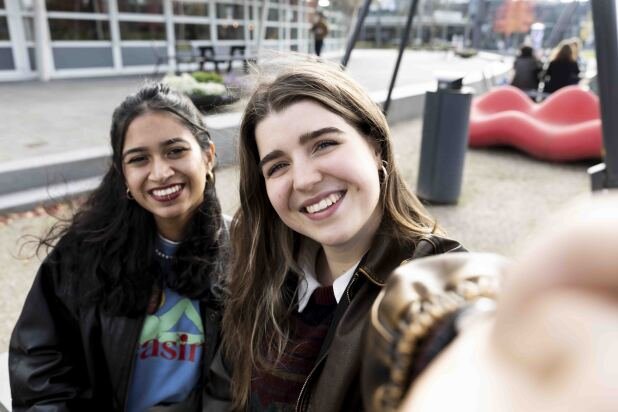La Vita è Bella
(Life is beautiful)
On October the first, we watched this touching film named: ‘La Vita è Bella’. It is a true story, based on the own experiences of Roberto Benigeni, the director who plays his father, the main character, in a magnificent way.
At first, I did not expect that I was going to like this movie, because my parents told me they thought it was a nice movie, so my conclusion was: I would not like the movie. I shall just call this prejudice an invasion of puberty, because during the movie my opinion dramatically changed.
La Vita è Bella is split up into two parts, the ‘beautiful life’ from the streets of Arezzo (or Part One) and the ‘Nazi life’ during the holocaust (or Part Two). With the start of the first part, I already became totally involved in the movie. My attention was attracted by Guido’s character, one with a humorous and extraordinary outlook on life. He entertained me with a set of laughable circumstances, in which he tries to seduce his principessa, or princess. When he marries his princess, Dora, and together have a son, the beautiful life is over; the holocaust begins and La Vita è Bella becomes more than a comedy. It becomes a film which explores the comedy throughout the most dramatic settings. The scenes in the concentration camp are filled with love and touching moments .In one of these moments Guido is demonstrating his love for Dora. Guido is telling through a microphone how much he loves Dora. Another example is the evening when he is playing music for her. I became silent and emotional, I was highly impressed and touched by these moments.
Guido also demonstrates his love for his son, Giosué. Guido is seeking for a way to protect his son's innocence and happy confidence, he hides the real and tragic circumstances from Giosué. Guido successfully creates the idea of a game which explains every detail of the circumstances questioned by a suspicious Giosué. For instance, when a Nazi official enters the barracks and asks for a translator, Guido volunteers and takes advantage of improvising. He slyly pretends to be translating the rules for this new game of his, where the ‘superficial’ goal is to win first prize, a tank, and the ‘hidden’ goal is to escape death. I found it a poignant scene. Giosué succeeds in escaping the fate many Jews could not escape, while Guido was killed as well. When the Americans break through the walls of the camp by a tank, Giosué meets them and the Americans take him along, on their way Giosué sees his mother and they are reunited. Giosué and his mother survived and won, while Guido gave his life for them.
I shall never forget this film and the different way of describing the Holocaust. I am real glad that I have seen the movie and all different emotions. I have laughed a lot but in the end I was almost crying. My mom agrees, she also finds it an emotional film. She says it all ended up quite good for the little boy However, he will have to miss his father, to whom this magnificent movie is dedicated.







REACTIES
1 seconde geleden